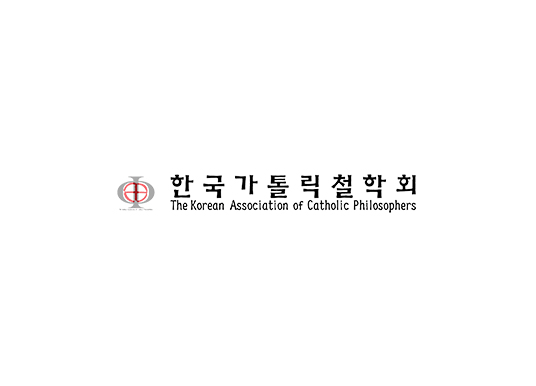2세기 그리스도교 철학자로서의 유스티누스 -초기 그리스도교와 플라톤 철학의 관계에 대한 유스티누스의 이해-
Justin as Christian Philosopher in 2nd Century -Justin’s Understanding of the Relationship between Early Christianity and Plato’s Philosophy-
김형수
가톨릭대학교
가톨릭철학
2021, vol., no.37, pp. 105-136 (32 pages)
한국가톨릭철학회
1. 주제설정
2. 유스티누스와 그리스 철학
3. 유스티누스의 철학적 사유
__3.1. 유스티누스의 로고스 이론
__3.2. 유스티누스와 플라톤주의
4. 유스티누스의 철학적 정체성
__4.1. 그리스도교 플라톤주의자로서의 유스티누스
__4.2. 그리스도교 철학작로서의 유스티누스
5. 결론을 대신하여: 유스티누스 철학의 의의
초록
초기 그리스도교는 자신의 교의를 이교인들에게 설명하기 위한 적합한 어휘들을 필요로 했으며, 그리스 철학의 개념들은 이러한 필요를 보충해 주었다. 특히 유스티누스는 당시 플라톤 철학이 신적 진리를 반영하는 일부 요소들을 포함하고 있기 때문에 그리스도교에 포섭될 수 있다고 보았으며, 그리스도교를 해명하는데 있어서 이들 철학자들의 증언들을 기꺼이 끌어들인다. 우선 유스티누스는 모든 인간 안에 신적인 요소인 ‘종자적 로고스’를 통해서 철학과 그리스도교 계시를 연결한다. 신적인 로고스는 한편으로는 철학자들에 의해서 결함이 있는 방식으로, 다른 한편으로는 로고스 자체인 그리스도 안의 계시 역사 안에 있는 그리스도인들에 의해서 온전하고 완전하게 인식된다. 더 나아가서 유스티누스에게 플라톤주의는 비가시적인 실재와 초자연적인 세계에 대한 믿음의 가능성을 보여준 가장 종교적 형태의 철학이었다. 그러한 의미에서 유스티누스는 많은 부분에서 플라톤 구절들을 인용하지만 특정한 의미에서 해석한다. 유스티누스에게서 플라톤의 철학은 그리스도교로 향하는 참된 철학으로 여겨졌다. 이렇게 플라톤적 사유는 그리스도교 계시에 의해 수정되고 성취된다는 점에서 유스티누스는 그리스도교 플라톤주의자이다. 더 나아가서 부분적인 진리를 지니는 그리스 철학과는 달리 그리스도교 철학은 진리 전체를 지니고 있다는 점을 주장한다는 점에서 유스티누스는 그리스도교 철학자이다. 결국 유스티누스에게 있어서 그리스도교는 철학들 가운데 하나의 철학이나 최고의 철학이 아니라, 원래의 태곳적 철학을 재구성한 ‘유일한 철학’이다.
Early Christianity needed appropriate vocabulary to explain its doctrine to the pagans, and concepts of Greek philosophy supplemented this need. In particular, Justin saw that Plato’s philosophy at that time contained some elements that reflected divine truth, so that it could be included in Christianity, and he was willing to take the testimonies of these philosophers in clarifying Christianity. First of all, Justin connects philosophy and Christian revelation through “Logos Spermatikos,” a divine element in all human beings. While the divine logos is perceived in a flawed way by philosophers, it is fully and completely recognized by Christians in the history of revelation in Christ, the logos itself. Furthermore, for Justin, Platonism was the most religious form of philosophy that showed the possibility of belief in an invisible reality and a supernatural world. In that sense, Justin quotes Plato verses in many places, but interprets them in a specific sense. Furthermore, Justin is a Christian philosopher in that it argues that, unlike Greek philosophy, which has partial truth, Christian philosophy has the whole truth. After all, for Justin, Christianity is not one of the philosophies or the supreme philosophy, but “the only philosophy” that reconstructs the original epoch-making philosophy.

